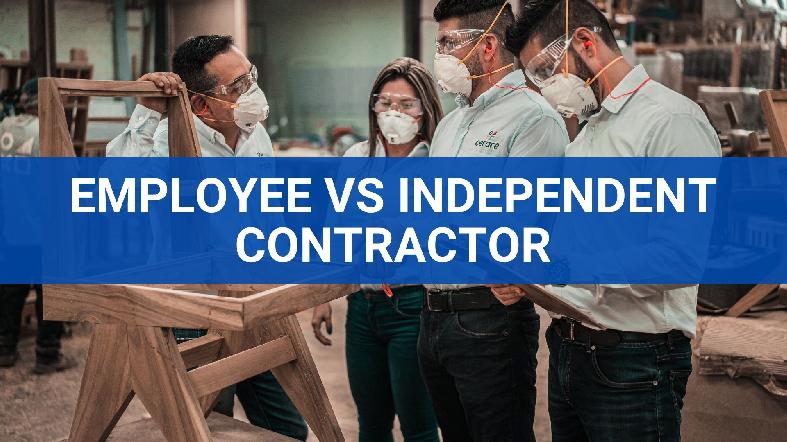
What’s the Difference Between Employee and Independent Contractor?
Are You Hiring?
Find candidates in 72 Hours with 5+ million talents in Maukerja Malaysia & Ricebowl using Instant Job Ads.
HIRE NOW
The gig economy has made us confused about the difference between an employee and an independent contractor.
We are no longer tied down to traditional fixed employment. Now, there are many opportunities to take on temporary, short term and flexible working arrangements that Malaysia is recovering from the COVID-19 pandemic.
In Peninsula Malaysia, we usually refer to two statutes when it comes to Employment. They are:
-
Employment Act 1955 (“EA”)
-
Industrial Relations Act 1967 (“IRA”)
These two statutes will be used in explaining the difference between an employee and an independent contractor.
The Basics of EA
-
The EA applies to those who fall within the definition of the term “employee” in section 2.
-
An “employee” is a person who
-
has signed a contract of service with the employer
-
earns wages of not more than RM2000.00 per month.
-
-
Notwithstanding 2)(b) above, some earn more than RM2000.00 per month but are still classified as “employee” under the EA. They are
-
manual labourers
-
operators of mechanically propelled vehicles
-
supervisor of manual labourers employed by the same employer in and throughout the performance of work
-
ship officers
-
domestic servants
-
Contract of Service
Contract of service is a contract where a person agrees to employ another person as an employee and that another person agrees to serve their employer as their employee. For example:
-
Letter of Offer
-
Letter of Appointment
There is a greater level of control that the employer exerts over the employee. Here are some usual clauses in the contract of services:
-
Job title/position
-
Remuneration
-
Commencement date
-
Probation period
-
Duration
-
Hours of work
-
Annual leave
-
Medical benefits
-
Statutory deductions
-
Conflict of interest
-
Confidentiality/non-competition
The law defines an employee as someone who is engaged under a “contract of service”, while an independent contractor is one who is engaged under a “contract for services”.
For example, a company engages an external party to conduct renovation work for their office. The contract between the company and the external party is a contract for service. The external party is not and cannot be an employee of the company.
These are some of the differences between an employee and an independent contractor:
|
Employee |
Independent Contractors (“IC”) |
|
|---|---|---|
|
Hours of work |
Standard hours, for example, 9 am to 6 pm. |
Flexible / not set. However, this may be set by the person hiring the IC. |
|
Remuneration |
Monthly/weekly/hourly salary is stated in the contract. |
Set and based upon completion of a task/project paid based on completion of certain stages of the project. |
|
Statutory deductions |
EPF, SOCSO |
None |
|
Annual Leave |
Stated in the employment contract |
None |
|
Termination |
Either party to give x months' notice of pay salary in lieu. |
|
|
Probation |
A probation period is set to determine the suitability for employment with the company. |
None |
|
Workplace |
Usually at the employer’s office |
A contractor works outside of the principal’s place |
Blurred Lines
In Malaysia, there are significant implications if one's classified as an "employee". For example, an employee who is terminated will have a right to claim for unfair dismissal under the IRA. Independent contractors have no such rights and can only rely on contractual rights if their contract is terminated.

With gig economy growing as always, the line between “employee” and “independent contractor” is becoming more blurred.
More and more often, both employers and employees are looking for mutually beneficial flexible working arrangements as opposed to traditional employment relationships.
Some small businesses prefer to offer "independent contractor contracts" because they are not commercially ready to commit to full-time employees. But employers should always remember to check their commercial needs and required job functions. An independent contractor is effective for the short term, but may unintentionally become an employee if the contractor ends up working exclusively for the company for a long time.
Looking for Non-Executive Staff? AJobThing.com is your top choice to hire quickly and efficiently. Try it today!


